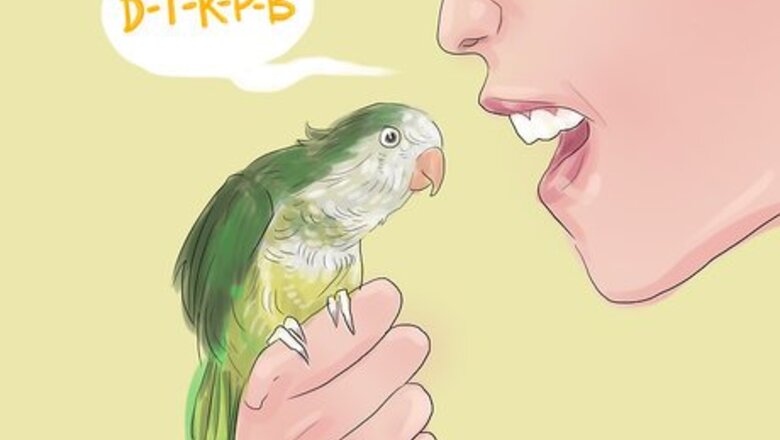
views
- Teach your parakeet one word at a time by repeating it over and over again.
- Parakeets do best with words containing the consonants d, t, k, p, and b.
- When your parakeet says the word, reward it with a treat.
How to Train Your Parakeet to Talk
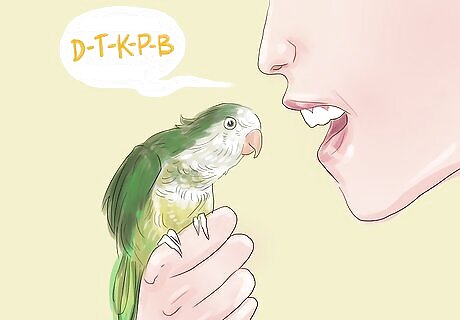
Repeat one word to your bird, over and over. Speak clearly and slowly, teaching them only one word at a time. Your parakeet may not know to repeat the word right away, but just keep repeating it. Note that parakeets are best with the consonants d,t,k,p, or b. A simple phrase like "Hi, how are you?" won't help because it is hard for your bird to say it. If you don't know what word to teach your bird first, consider teaching it it's name. This is a word they have probably heard before, so the sounds should be familiar to your parakeet already.
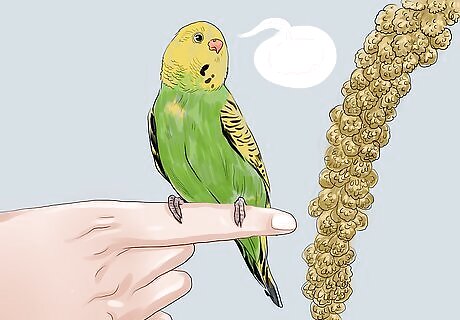
Reward your parakeet if he or she says the word you're teaching it. This will reinforce the behavior and also help to further the bond between you and your bird. Parakeets love millet sprays; Celery and carrots are also great treats and they provide essential nutrients for your budgie's health.
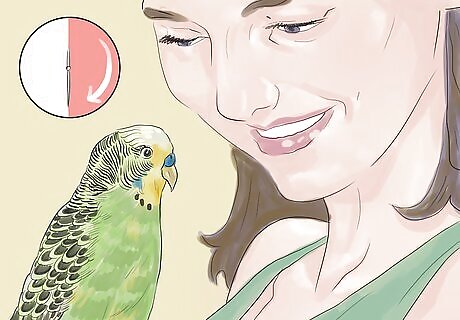
Speak to your bird for a few minutes at a time. However, don't try to train it for too long in one session. It's a good idea to work with your parakeet for about a half an hour a day. If you try to work with it for too long, your bird may get bored and could become less willing to learn.
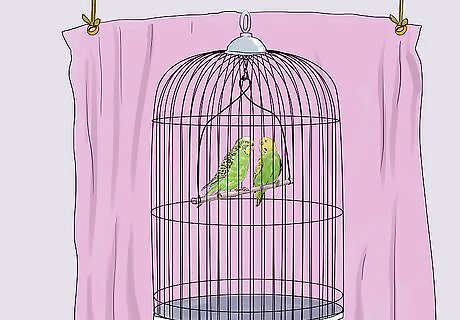
Don't let the bird get distracted during lessons. Keep it focused by covering three sides of the bird's cage with a cloth. Stand right in front of their cage when talking to your bird, so it knows that it is you speaking to it.
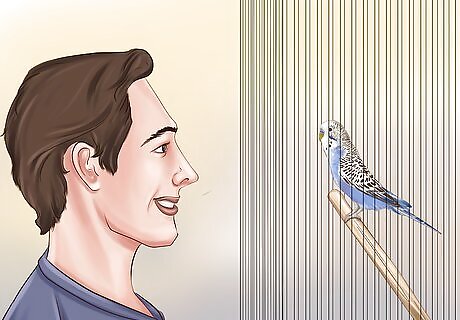
Keep each lesson focused. Don't move onto a second word until your parakeet can say the first phrase correctly at least three times in a row. Making sure that your parakeet really knows a word before moving on will make it more likely that it will repeat the same word or phrase at a later time.
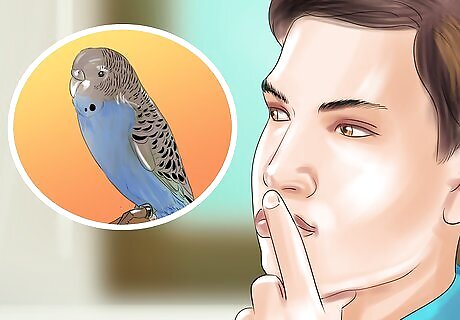
Be patient. Do not try to force your parakeet to talk. Many parakeets never learn to talk, but it's fun to try!
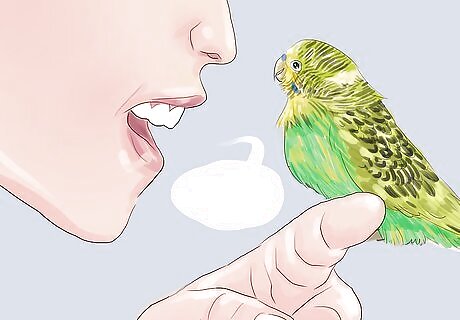
Move on to more complicated words or phrases. Once your parakeet has mastered a few words, you can move on to full phrases. Just as with teaching it words, repeat the phrase to your parakeet when it is calm and willing to focus on you. The parakeet will be focused if you are the only one in the room,but others can cause your parakeet to be frightened.
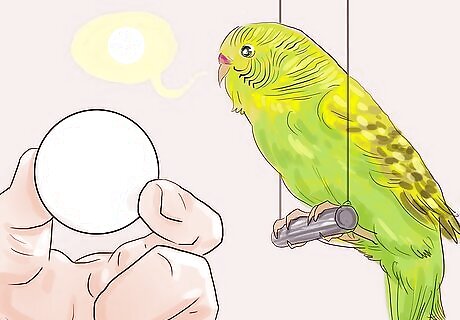
Get your parakeet to name an object or an object's color. As you say a word, hold up the object. With enough practice, you should be able to just hold up the object and the parakeet will repeat the word you taught it. It will simply be repeating the sounds you made but it will appear as if it can actually identify the object.
Best Teaching Practices
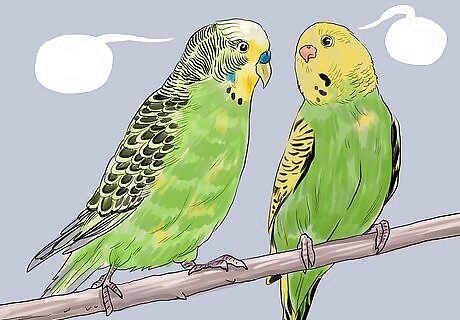
Have a limited number of parakeets. Parakeets can develop their ability to make noises by talking to other birds, so having a few birds can help both of them develop the variety of their chirping. However, having too many birds will focus all their communication on other birds, instead of on communicating with you. Having a few birds will usually not limit your ability to train them to talk but more than a few could hinder your progress. If you only have one parakeet, trick it into thinking it has a friend by placing a mirror in its cage. This will help it develop and practice chirping. However, you should take the mirror out of its cage before you start teaching it how to talk, so that your bird focuses its attention on you.
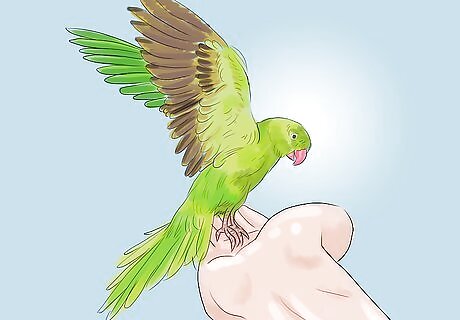
Make your parakeet comfortable with you. Make friends with your bird by spending time with it, speaking to it, and keeping it nice and comfy in your home. Basically, treat your parakeet like it is a part of your family, because it is. The goal should be to build up trust between you and your parakeet. Don't force the bird to interact with you if it doesn't want to. If the bird is scared of you or ignoring you it is just a sign that the time is not right or that you are moving too quickly. It is not a sign that your bird will never bond with you.
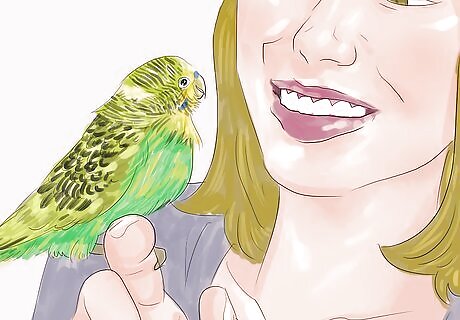
Pick the right time to train your parakeet. Make sure that the bird is calm and ready to focus its attention on you. If the bird is tired or distracted, it won't be as easy to train. A good time to train your bird is first thing in the morning. You can even start repeating words for your bird before uncovering its cage at the start of the day.



















Comments
0 comment